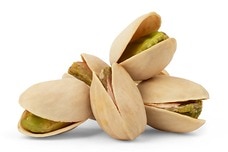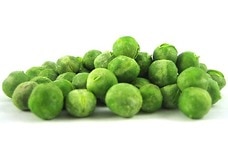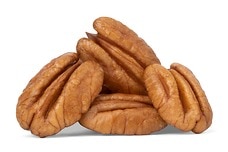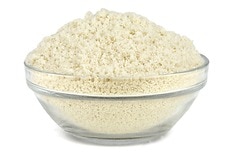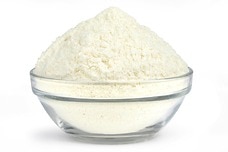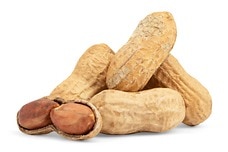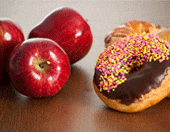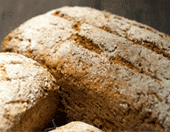Low-Carb Diet and Foods
Carbohydrates are nutrients naturally found in foods that provide our most important source of energy. There are three central categories of carbohydrates: starches, sugars, and fiber. These compounds are found in a wide variety of foods, including fruits, vegetables, nuts, milk, grains, seeds, and legumes. Many aim to eat fewer carbohydrates in an effort to lose weight, lower blood sugar levels, and mitigate their risk for disease.
Unfortunately, due to their nigh ubiquitous presence, eating less carbohydrates may prove difficult; however, some foods have fewer carbohydrates than others and the types of carbohydrates they supply may significantly influence their impact on your health. With the exception of those prescribed a truly low-carb diet as a medical intervention for intractable epilepsy, 40 - 60% of any person's caloric intake should be derived from healthy carbohydrates.
Three Kinds of Carbs
Of the aforementioned categories of carbohydrates, each provides its own health benefits when eaten in moderation; however, the healthiest quantities will vary depending on both the type and source of the compounds. Each kind of carb should be consumed primarily from natural foods and artificial or refined manifestations of the compounds should be avoided.
Sugars - While carbohydrates are defined by the sugars that compose them, certain compounds are less complex than others. Simple carbohydrates, or sugars, are composed of no more than two saccharides, the basic units used by cells to produce energy. This simplicity means sugars are metabolized faster than more complex compounds and, as their name implies, have a more direct impact on blood sugar levels. Fruits and dairy products are rich, natural sources of sugars.
Starches - Also known as complex carbohydrates, these compounds are composed of several sugar saccharides that have bonded together. Their complexity takes longer to metabolize than simple sugars and, therefore, provides a more enduring source of energy. Additionally, this characteristic limits the increase in both blood sugar and blood pressure levels that is caused by their consumption. Starches are often found in vegetables, grains, and legumes.
Fiber - An indigestible plant protein, fiber passes through your system without being broken down into sugars. Instead, it helps push foods through the large intestine, thereby aiding in the elimination of excess fats. These roles and the support they provide to our digestive and heart health make fiber an essential component to any diet. Fruits, vegetables, nuts, seeds, legumes, and whole grains all tend to be rich in this healthful carbohydrate.
Typical Foods to Avoid

While fruits and milk provide a healthy source of natural sugars, the simpler saccharides can also be found in baked goods, which commonly contain refined sugars. Syrups, sodas, candy, and cakes are just some of the culprits behind poorly regulated blood sugar. While foods with refined sugars should surely be avoided, similarly circumventing natural sources of simple sugars may not be the best option for ensuring a well-rounded diet rich in fiber and healthy fats.
As for more complex carbohydrates, some candidates stand out as superior sources of the stuff than their refined counterparts. Refined grains and products that utilize them, such as short-grain white rice and white bread, can carry a heavy glycemic load, meaning that they may cause a sudden spike in blood sugar levels and may adversely affect blood pressure. Particularly starchy vegetables like Russet potatoes may also cause similarly adverse effects.
To determine which carbohydrates are right for your diet, you may wish to utilize a tool known as the glycemic index (GI), a system of quantifying the rate at and extent to which a food raises blood sugar levels. The higher the GI value of a food, the faster it will elevate the concentration of sugar in your blood; this system allows anyone to easily identify which carbohydrates to include in their diet without disrupting their cardiovascular health.
While the glycemic index of a food may help those seeking to reduce carbohydrate intake to control diabetes, other conditions may require different considerations. Celiac disease, for example, is closely related to type 1 diabetes and is characterized, in part, by gluten intolerance. Gluten is a mixture of proteins found in many grains. However, Celiac patients and anyone with a gluten intolerance or wheat allergy do not have to cut all grains from their diet.
Healthy Carbohydrates and Supplicants to a Low Carb Diet
Ultimately, which foods you eat and which you avoid depend on your goals. Those pursuing weight loss should strive to eat fewer calories, a goal which might be made easier by subscribing to a low carbohydrate diet. Others who are happy with their weight but suffer from hypertension may simply elect to watch the glycemic index of the foods added to their plate. Still yet, other foods appear ideal for nearly any healthy diet.
Leafy vegetables such as spinach and kale provide a dense supply of essential nutrients and offer fiber as their primary carbohydrate content. Similarly, bright vegetables such as bell peppers, carrots and beets offer a stellar source of antioxidants and additional vitamins. Nuts and whole grains should make up a small portion of your plate as well, offering healthy fats, fiber and protein.
Lastly, milk and other dairy products can be enjoyed in moderation, so long as they are minimally processed; ideal selections of protein sources are lean and minimally processed, as well. Good sources of fat and protein include fish, eggs, butter, greek yogurt, and whole milk. Fruits can supply a healthy source of fiber, vitamins, and minerals; but, due to their sugary content, they should be eaten in moderation.
The Risks of Low Carb Diets

Since carbohydrates are found in many foods and supply a vital source of energy, drastically reducing your carbohydrate intake can cause several adverse effects. For those that fully forsake whole grains and fruit, a lack of fiber may lead to occasional bouts of constipation or diarrhea; but, larger potential problems posed by cutting carbs completely are the dangers of nutrient deficiencies and ketosis.
Many of the natural sources of fiber and starches listed above supply essential nutrients as well. Foregoing these foods may lead to serious deficiencies of folic acid, calcium, potassium, and other minerals which may, in turn, cause bone loss or heart disease. These problems can be remedied by eating select nutrient-dense cruciferous veggies and even by taking supplements that address areas in which your diet may be lacking.
Lastly, those pursing a low carb diet may enter a state known as dietary ketosis. This condition refers to a state of accelerated fat metabolism caused by an excess of ketones in the blood. Ketones are produced as a byproduct of the liver’s efforts to create energy without an adequate supply of glucose. Ketoacidosis is a state of uncontrolled ketosis that can cause very serious health issues.
Ketoacidosis can be induced by type 1 diabetes, prolonged fasting, strenuous exercise, or a continual abstinence from carbohydrate consumption. Commonly, dehydration and halitosis affect those in a state of dietary ketosis while more serious cases can lead to renal failure and death. To prevent ketoacidosis, simple ensure your diet maintains a healthy balance of carbohydrates, proteins, and fats.
Low-Carb Recipes
Formulated for anyone and everyone, these absolutely delectable healthy recipes were selected for their minimal and wholesome source of carbohydrates.

Matcha Green Tea Muffins Recipe {gluten-free}
As far as muffins go, you’re unlikely to find an option that supplies fewer carbs per serving than our incredibly delectable matcha muffins. Try this incredible recipe today!
Ingredients: Almond flour, coconut flour, gluten-free rolled oats, egg, olive oil, vanilla extract, almond milk, unrefined sugar, matcha green tea powder, baking powder, baking soda, dark chocolate chips, coconut oil, pistachios.
Total Time: 1 hour
| Yield: 10 muffins
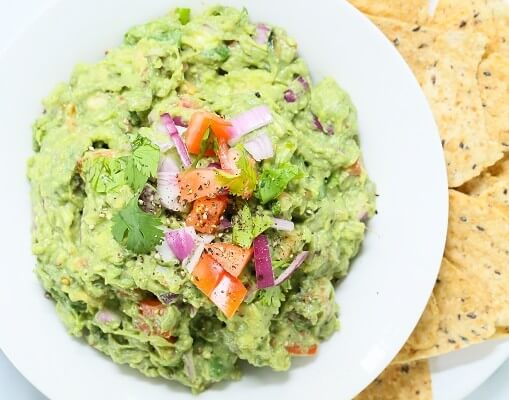
Chlorella Guacamole Recipe
This delectable dip does more than simply supply a scrumptious savor to your favorite low-carb crisps- it also provides a preponderance of fiber to keep your digestive health intact!
Ingredients: Avocados, tomato, onion, lime juice, fresh cilantro, garlic, jalapeno pepper, chlorella powder, salt, crushed pepper.
Total Time: 15 minutes
| Yield: 3 cups (10 servings)

Mint Chocolate Popsicle Recipe {vegan}
These delectable desserts are almost entirely free of carbs to supply a scrumptious snack that you can savor whenever your sweet tooth seeks satiety.
Ingredients: Coconut cream, cacao powder, cacao nibs, maple syrup, spirulina, mint extract, coconut oil, dark chocolate chips (vegan)
Total Time: 30 minutes
| Yield: 7 popsicles

Almond Truffles Recipe {gluten-free, vegan}
Try a treat that is not only low in carbohydrates, but that primarily offers fiber as its central source of the stuff. Eating healthy never tasted so good!
Ingredients: Pitted dates, almond flour, almond butter, water, flaxseed meal, freeze-dried raspberries, unsweetened shredded coconut.
Total Time: 15 minutes
| Yield: 14 - 16 truffles
Low-Carb Snacks
Included in this group are staple ingredients and snacks to support a low-carb eating plan; all of these snacks have 10 grams of carbohydrates or less per serving.
Healthy Eating
- Healthy Snacks
- Healthy Highlights
- 5 Uses for Cacao Powder
- 5 Ways to Eat Farro
- 6 Best Gluten-Free Foods
- Alcohol and the Body
- Almond Flour Recipes
- Anti-Aging Superfoods
- Beat the Afternoon Slump
- Benefits of a Plant-Based Diet
- Benefits of Baobab
- Benefits of Cashews
- Benefits of Coconut Oil for Hair
- Benefits of Coconuts
- Benefits of Dates
- Benefits of Fenugreek
- Benefits of Garcinia Cambogia
- Benefits of Goji Berries
- Benefits of Kale Chips
- Benefits of Monk Fruit Sweetener
- Benefits of Peanuts
- Benefits of Pecans
- Benefits of Pistachios
- Benefits of Pumpkin Seeds
- Benefits of Spelt Flour
- Benefits of Steel Cut Oats
- Benefits of Sunflower Seeds
- Benefits of Tiger Nuts
- Benefits of Turmeric
- Benefits of Walnuts
- Benefits of Wheatgrass
- Best Food Fads
- Cacao vs Cocoa
- Caffeine-Free Energy Foods
- Chocolate That's Good for You
- Diet vs. Exercise
- Fat Burning Foods
- Food Myths Debunked
- Foods for Bone Density
- Foods for Colon Health
- Foods for Healthy Hair
- Foods for Healthy Skin
- Foods to Help Sleep
- Foods to Reduce Stress
- Green Tea Benefits
- Healthy Baking Flours
- Heart Healthy Habits
- High Protein Health Risks
- How to Boost Your Metabolism
- How to Lose Weight While Aging
- How to Throw a Vegan BBQ
- Kaniwa vs Quinoa
- Little Health Foods
- Low-Carb: Fad or Friend?
- Making Healthier Desserts
- Mediterranean Diet Meal Plan
- Natural Beauty Products
- Nuts for Weight Loss
- Preparing Vegan Meals
- Preventing Muscle Degeneration
- Rare Superfoods
- Reduce Sugar Intake
- Save Time By Going Vegan
- Smarter Snack Swaps
- Smoothie Ingredients
- Soy Protein vs Whey Protein
- Starting a Plant-Based Diet
- Steel Cut vs Rolled Oats
- Sugar Substitutes
- Vegan Proteins
- Vegan Substitutions for Fall Recipes
- Why Go Vegan
- Healthy Meals
- Healthy Recipes
- Sports Nutrition
- Vitamins, Minerals & Nutrients

